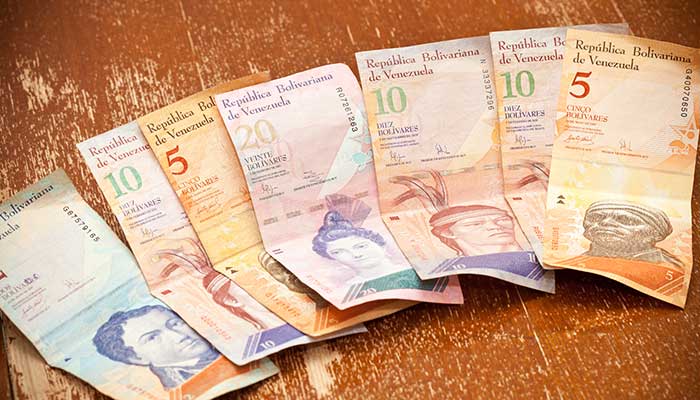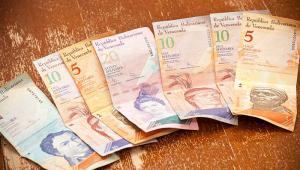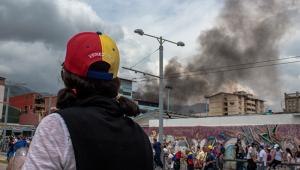Demonetisation of the 100-bolívar notes comes amid a spiralling economic crisis, soaring inflation and ahead of the introduction of six new larger notes and coins this week.
During a TV programme on Sunday, Maduro said the measure was necessary to tackle smuggling by organised crime groups, which buy up the notes in order to purchase subsidised goods in Venezuela and sell them across the border for a profit.
But critics have argued that pulling the notes will not end critical shortages of basic goods in the country and that people will not have enough time to exchange the widely used notes in the ten days the government has allotted.
For Maduro, setting a short window for the notes to be exchanged will prevent those involved in organised crime from trading in their 100-bolívar notes, which will be out of circulation by Wednesday, for new currency.
However, the move is likely to exacerbate an already severe cash crunch in Venezuela. Inflation is estimated to be in triple figures and everyday transactions require bags full of cash, which has recently been difficult to acquire.
The 100-bolívar note is one of the most common in circulation, with data from the country’s central bank showing they represent almost half of all currency in use.
A similar move in India last month sparked chaos as millions of people rushed to trade in their soon-to-be defunct notes. A failure to print enough of the replacement currency quickly, and the size of the new notes meant hundreds of thousands of ATMs across the country had to be recalibrated in order to dispense them.
As in India, Venezuela’s demonetisation is likely to hit the country’s largely cash-based economy – already struggling as the country’s currency continues a dramatic slide on the currency markets.
In November, the currency lost 55% of its value against the US dollar. By the end of the month, 100 bolívars was worth just two US cents on the black market.
The government hopes the introduction of six new notes, ranging from 500 bolívars to 20,000 bolívars, and three new coins later this week will ease the practical problems for individuals and businesses.
Venezuela’s heavily oil-reliant economy began its downward spiral in 2014 with the collapse in commodity prices, although economists also point to strict currency controls starting in 2003 that pegged the bolívar to the dollar.
Critics of the president also argue that two decades’ worth of failed socialist economic policies are to blame for the country’s decline, while Maduro cites an “economic war” waged against the state.
The International Monetary Fund is expecting the country’s economy to shrink by 10% in 2016 – the biggest contraction in more than a decade – and for inflation to top 1,640% in 2017.














